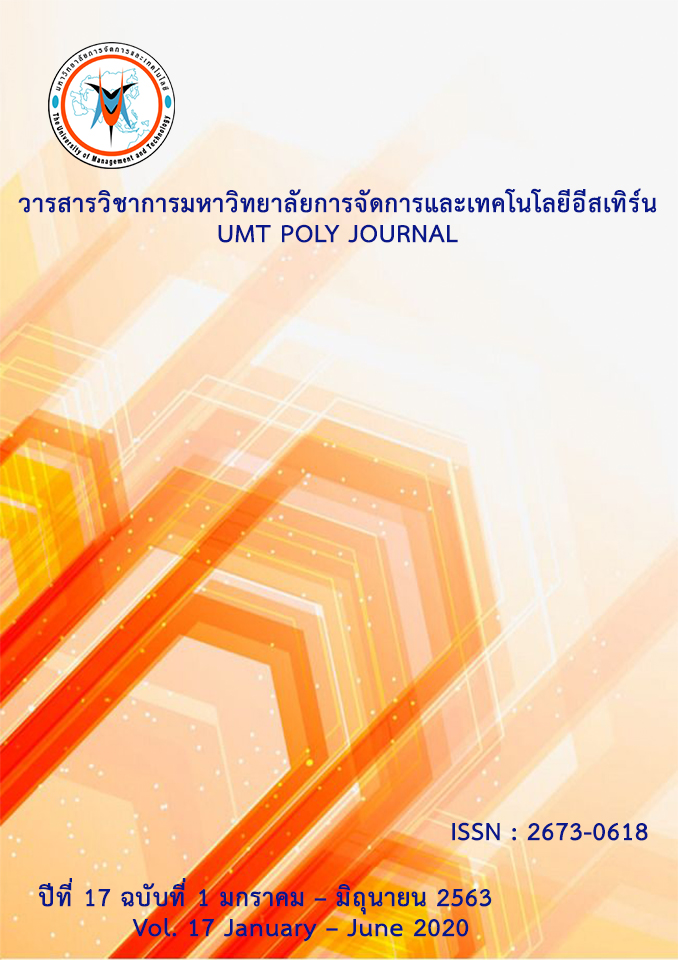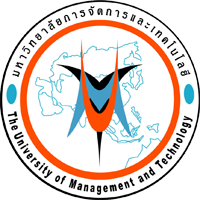ผลของกลุ่มจิตบำบัดแบบประคับประคองต่อความเข้มแข็งทางใจในผู้ใหญ่ที่ติดสารแอมเฟตามีน
คำสำคัญ:
กลุ่มบำบัดแบบประคับประคอง, ความเข้มแข็งทางใจ, ผู้ใหญ่ที่ติดสารแอมเฟตามีนบทคัดย่อ
ความเข้มแข็งทางใจช่วยให้บุคคลกลับคืนฟื้นสภาพและดำเนินชีวิตได้ต่อไป และเป็นสิ่งสำคัญในกระบวนการบำบัดยาเสพติดให้ประสบความสำเร็จ การวิจัยกึ่งทดลองนี้มีวัตถุประสงค์เพื่อศึกษาผลของโปรแกรมกลุ่มจิตบำบัดแบบประคับประคองต่อความเข้มแข็งทางใจในผู้ใหญ่ที่ติดสารแอมเฟตามีน กลุ่มตัวอย่างเป็นผู้ใหญ่เพศชายที่ติดสารแอมเฟตามีนที่มารับบริการบำบัดรักษาที่แผนกสุขภาพจิต โรงพยาบาลแห่งหนึ่ง และมีคุณสมบัติตามเกณฑ์ที่กำหนด จำนวน 24 คน สุ่มตัวอย่างอย่างง่ายเข้ากลุ่มทดลอง และกลุ่มควบคุม กลุ่มละ 12 คน กลุ่มทดลองได้รับโปรแกรมกลุ่มจิตบำบัดแบบประคับประคอง ระยะเวลา 4 สัปดาห์ จำนวน 8 ครั้ง สัปดาห์ละ 2 ครั้ง ครั้งละ 60-90 นาที ส่วนกลุ่มควบคุมได้รับการพยาบาลตามปกติ เครื่องมือที่ใช้ในการเก็บรวบรวมข้อมูล ประกอบด้วย แบบสอบถามข้อมูลส่วนบุคคล และแบบประเมินความเข้มแข็งทางใจ วิเคราะห์ก่อนการทดลอง หลังการทดลองเสร็จสิ้นทันที และติดตามผล 1 เดือน โดยใช้สถิติเชิงพรรณนา สถิติทดสอบค่าที การวิเคราะห์ความแปรปรวนแบบวัดซ้ำ (Two-way repeated measure ANOVA) และทดสอบความแตกต่างรายคู่ด้วยวิธี Bonferroni
ผลการวิจัยพบว่า กลุ่มทดลองมีคะแนนเฉลี่ยความเข้มแข็งทางใจแตกต่างจากกลุ่มควบคุม อย่างมีนัยสำคัญทางสถิติที่ระดับ .01 ทั้งในระยะหลังการทดลองเสร็จสิ้นทันที และระยะติดตามผล 1 เดือน กลุ่มทดลองมีคะแนนเฉลี่ยความเข้มแข็งทางใจในระยะก่อนการทดลอง หลังการทดลองเสร็จสิ้นทันที และระยะติดตามผล 1 เดือน แตกต่างกันอย่างมีนัยสำคัญทางสถิติที่ระดับ .05 ส่วนในระยะหลังการทดลองเสร็จสิ้นทันที และระยะติดตามผล 1 เดือน ไม่แตกต่างกันอย่างมีนัยสำคัญ
ทางสถิติที่ระดับ .05
ผลการวิจัยแสดงให้เห็นว่า โปรแกรมกลุ่มจิตบำบัดแบบประคับประคองสามารถเสริมสร้างความเข้มแข็งทางใจของผู้ใหญ่ที่ติดสารแอมเฟตามีนได้ ดังนั้น พยาบาลหรือบุคลากรทางด้านสุขภาพจึงควรนำโปรแกรมกลุ่มจิตบำบัดแบบประคับประคองนี้ไปประยุกต์ใช้เพื่อเสริมสร้างความเข้มแข็งทางใจในผู้ใหญ่ที่ติดสารแอมเฟตามีนในที่อื่น ๆ ต่อไป
Downloads
เอกสารอ้างอิง
Boran, S. (2559). The effects of supportive group psychotherapy on perceived sele-efficacy and intention to drug abstinence among adolescents with amphetamine addiction. The
thesis master of nursing science, Psychiatric and mental health nursing, graduate school, Burapha university.
Grotberg, E. (1995). A guide to promoting resilience in children: Strengthening the human spirit. Holland: Bernard van Leer Foundation.
Masten, A. S. (2007). Resilience in developing systems: Progress and promise as the fourth waverises. Development and Psychopathology, 19, 921-930.
Princess mother national institute on drug abuse treatment. (2011). Annual report 2010. Pathumthani : Princess mother national institute on drug abuse treatment.
Polkacha, L. (2011). The effect of yalom’s group thrapy on self-esteem in male adolescents at risk to alcohol dirnking. The thesis master of nursing science, Psychiatric and mental
health nursing, graduate school, Burapha university.
Tantipiwutthanasakul, P. (2007). The handbook of resiliency promotion for healthcare worker. Bangkok : The agricultural cooperative federation of Thailand limited.
Toongkampan, P. (2008). The group psychotherapy for healthcare worker. Chaimai : Nursing faculty, Chaingmai university
Werner, E. E. (1989). High-risk children in young adulthood: A longitudinal study from birthto 32 years. American Journal of Orthopsychiatry, 59(1), 72-81.
Yalom, I. D. (1995). Theory and practice of group psychotherapy (4th ed.). New York: Basic Books.
ดาวน์โหลด
เผยแพร่แล้ว
ฉบับ
ประเภทบทความ
สัญญาอนุญาต
ประกาศลิขสิทธิ์
เนื้อหาและข้อมูลในบทความที่ลงตีพิมพ์ในวารสารวิชาการมหาวิทยาลัยการจัดการและเทคโนโลยีอีสเทิร์น ถือเป็นข้อคิดเห็นและความรับผิดชอบของผู้เขียนบทความโดยตรง ซึ่งกองบรรณาธิการวารสารไม่จำเป็นต้องเห็นด้วยหรือร่วมรับผิดชอบใด ๆ
บทความ ข้อมูล เนื้อหาหรือรูปภาพ ฯลฯ ที่ได้รับการตีพิมพ์ในวารสารวิชาการมหาวิทยาลัยการจัดการและเทคโนโลยีอีสเทิร์น ถือเป็นลิขสิทธิ์ของวารสารวิชาการมหาวิทยาลัยการจัดการและเทคโนโลยีอีสเทิร์น หากบุคคลหรือหน่วยงานใดต้องการนำข้อมูลทั้งหมดหรือบางส่วนไปเผยแพร่ต่อหรือเพื่อกระทำการใด ๆ จะต้องได้รับอนุญาตเป็นลายลักษณ์อักษรจากวารสารวิชาการมหาวิทยาลัยการจัดการและเทคโนโลยีอีสเทิร์นก่อนเท่านั้น




